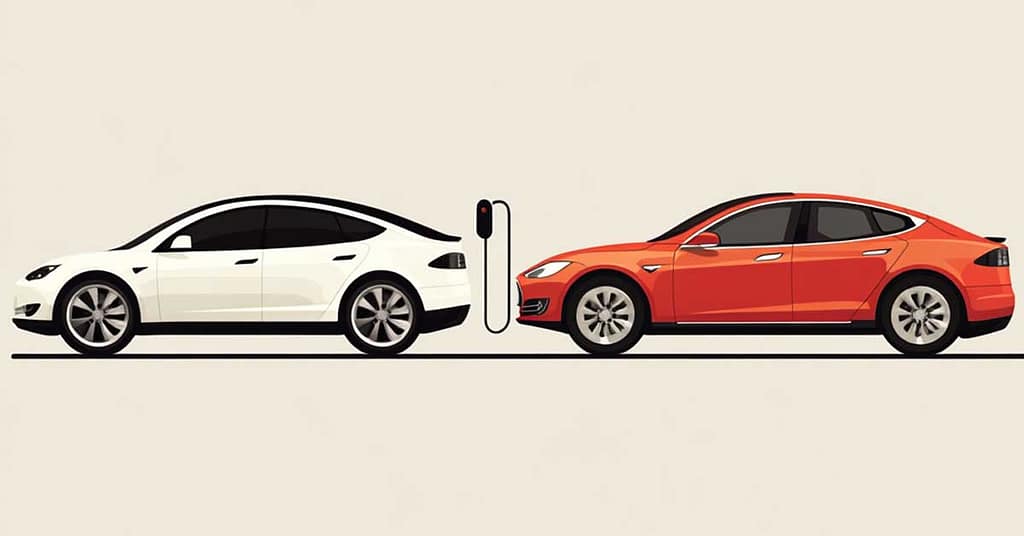The shift toward more sustainable vehicles is undeniable, and for many, the choice comes down to two options: electric cars and hybrid cars. This choice, however, isn’t as simple as picking the flashiest model or the one with the most horsepower. When faced with the options of electric vehicles (EVs) and hybrids, it’s essential to understand the strengths and weaknesses of each, as well as how they fit into your lifestyle. In this deep dive, we’ll talk about Electric Cars vs. Hybrid Cars, covering everything from what makes them tick to which one might be right for you.
You May Also Like: Best Fitness Apps for Beginners: Get Started Today
Electric Cars: Fully Powered by Electricity
Electric vehicles, or EVs, represent the cutting edge of automotive technology—their engines are entirely powered by electricity stored in large battery packs. Unlike traditional vehicles that rely on internal combustion engines (ICE), EVs have at least one electric motor that propels them forward, giving them that seamless acceleration and quiet ride that so many people love. But let’s take a closer look at what makes them stand out.
EVs are often touted for their environmental benefits. Since they don’t burn gasoline, they don’t emit greenhouse gases or pollutants directly, making them a popular choice for anyone conscious about their environmental footprint. Plus, the energy that fuels an EV can come from renewable sources like solar, wind, and hydroelectric power. This means that EVs have the potential to be a zero-emissions transportation option, depending on the electricity source.
In addition to their environmental advantages, EVs are mechanically simpler. The lack of an internal combustion engine means fewer moving parts—and fewer opportunities for something to go wrong. That simplicity translates to lower maintenance costs, as there are no oil changes, spark plugs, or timing belts to worry about. The instant torque from the electric motors also makes for a thrilling, responsive drive, which can be addicting for anyone who loves the feel of fast acceleration.
However, it’s not all sunshine and rainbows. Electric cars come with challenges, most notably range anxiety and charging infrastructure. While more and more charging stations are popping up, having to plan your route around available chargers can be a hassle, especially on longer road trips. Battery production also has an environmental impact due to the mining of lithium, cobalt, and other materials. Batteries degrade over time too, although modern EVs typically come with warranties that cover the battery for up to eight or even ten years.

Hybrid Cars: A Middle Ground Between Gas and Electric
For those who aren’t ready to fully commit to an electric car, hybrid vehicles offer a comfortable middle ground. Hybrids combine a traditional internal combustion engine with an electric motor, providing the best of both worlds. This unique powertrain allows hybrids to operate in different modes—sometimes purely electric, sometimes with the engine, and often a combination of both. This seamless switching makes hybrids a versatile option.
Standard hybrids don’t need to be plugged in. They recharge their battery by capturing energy that would otherwise be lost, like during braking, and using the internal combustion engine when necessary. The result is improved fuel efficiency and lower emissions compared to traditional cars. This makes hybrids ideal for people who want to reduce their carbon footprint without worrying about charging stations or having to plan around battery range.
Then there are plug-in hybrids (PHEVs), which take things a step further. PHEVs have larger batteries compared to traditional hybrids and can be plugged in to charge. This allows them to run solely on electric power for a limited range—typically between 20 to 50 miles—before the gas engine kicks in. Essentially, they give you a taste of electric driving while maintaining the security of a gas engine for longer trips.
The downside of hybrids, however, lies in their complexity. With both an electric motor and an internal combustion engine, hybrids have more components that could potentially fail. They also still rely on fossil fuels, albeit in smaller quantities. While their batteries are smaller and less resource-intensive to produce than those of full EVs, they aren’t entirely free of environmental concerns.
Which One Should You Choose?
So, how do you decide between an electric car and a hybrid? It really comes down to your lifestyle and driving habits. If you have a short daily commute, access to charging at home or work, and a desire to fully embrace an emissions-free lifestyle, an EV could be an excellent fit for you. The experience of driving an electric car—with its quiet cabin, instant acceleration, and lower maintenance costs—is hard to beat, especially if you’re ready to say goodbye to gas stations altogether.
On the other hand, if you’re not quite ready to make the leap into an all-electric future, a hybrid could be the perfect stepping stone. You’ll still benefit from improved fuel efficiency and reduced emissions without having to worry about finding a charging station on a road trip. Plug-in hybrids, in particular, offer a great compromise by allowing you to enjoy electric-only driving for most daily trips while keeping a gas engine on hand for extended journeys.
Ultimately, both electric cars and hybrids represent a shift toward a cleaner, more sustainable future in transportation. While EVs are paving the way for zero-emission driving, hybrids offer a practical solution for those who want a taste of electrification without giving up the convenience of a traditional engine. Whichever route you choose, you’ll be contributing to a greener future—one mile at a time.